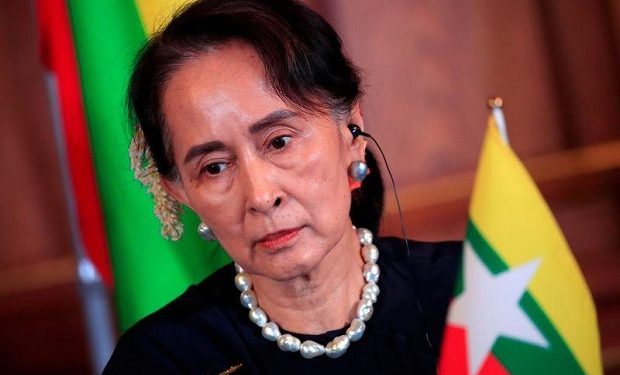Police in Myanmar filed a new charge against deposed leader Aung San Suu Kyi.
Suu Kyi, who was detained in the Feb. 1, 2021, military takeover, faced a charge of illegally possessing walkie-talkies — an apparent attempt to provide a legal veneer for her house arrest.
The new charge accuses her of breaking a law that has been used to prosecute people who have violated coronavirus restrictions, said the lawyer of Suu Kyi, Khin Maung Zaw in the capital, Naypyitaw.
It carries a maximum punishment of three years in prison. The legal maneuver comes two weeks after the military seized power in a shocking halt to Myanmar’s fragile progress toward democracy, most visible in Suu Kyi’s tenure as a national leader.
Since the coup, the junta has ratcheted up the pressure on protesters resisting the takeover, including violently breaking up some demonstrations and blocking internet access.
A spokesman for the United Nations said any new charges against Suu Kyi don’t change the world body’s “firm denunciation” of the military overturning the “democratic will of the people” and arresting political leaders, activists and peaceful protesters.
“We have called for charges against her to be dropped, for her to be released,” United Nations spokesman Stéphane Dujarric said.
More protests were expected Wednesday all over the country. On Tuesday in Yangon, the country’s largest city, police blocked off the street in front of the Central Bank, which protesters have targeted amid speculation online that the military is seeking to seize money from it. Buddhist monks demonstrated outside the U.N.’s local office in the city.
Around 3,000 demonstrators — mainly students — had returned to the streets of Mandalay, carrying posters of Suu Kyi and shouting for the return of democracy.
On Monday, security forces there had pointed guns at a group of 1,000 demonstrators and attacked them with slingshots and sticks. Local media reported that police also fired rubber bullets into a crowd and that a few people were injured.
The protests are taking place in defiance of an order banning gatherings of five or more people.



